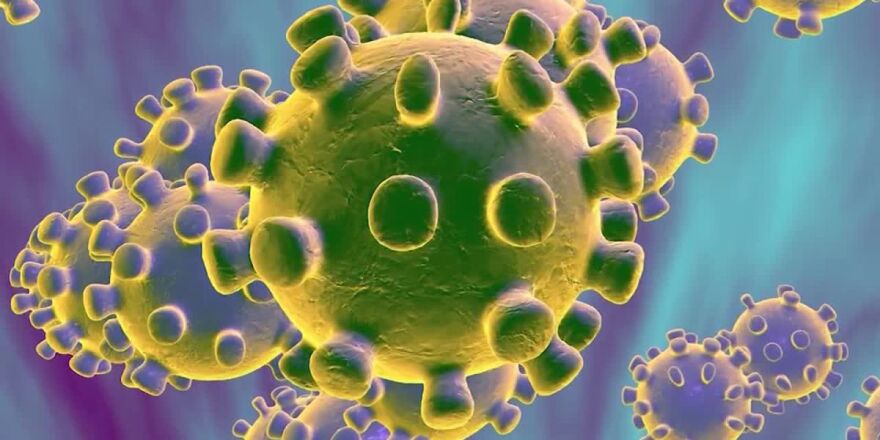The coronavirus pandemic has made physical health a priority for communities across the country. While social distancing is key in the fight to control the spread of COVID-19, the disease caused by the coronavirus, decreased social contact and significant changes to everyday life bring another priority for health professionals to respond to: mental health.
Humans are social animals and seek interactions with others. With the onset of the Centers for Disease Control and Prevention’s social distancing guidelines, normal interactions have become more difficult.
Dr. Jennifer Daniels, a social psychologist and associate psychology professor at Lyon College in Batesville, Ark., said social distancing and isolation can have significant impacts on the brain.
"Our frontal lobe, which is the part of the brain in charge of things like being rational and making good choices, actually short circuits when we’re separated from other human beings," Daniels said.
Daniels has worked significantly on the psychological concept of ostracism, or the social exclusion of individuals from a group. And while her work has focused on bullying and other forms of social rejection, she has seen connections between her work and experiences during the coronavirus pandemic.
"The stuff that we’re all experiencing right now is almost like ostracism en masse," Daniels said. "And even though it’s [to keep each other safe], we’re drawn to be together."
Humanity’s tendency to come together has made implementing social distancing guidelines difficult at times. In March, college students on spring break from the University of Tampa vacationed on Florida beaches despite recommendations to stay home. In the weeks following the trip, at least five students from the university tested positive for COVID-19 and many local Floridian governments closed their beaches.
Opposite kinds of responses to the coronavirus pandemic have occurred too. In the weeks following the first positive COVID-19 tests in the United States, medical mask sales were up over 300 percent, leading to concerns of potential mask shortages at hospitals around the country. In the weeks since, shortages of masks and other medical supplies have proven common.
People are self-focused and predisposed to not see the larger perspective of their actions, Daniels said.
"We’re constantly trying to balance [our] individual needs with the needs of the group," Daniels said. "Quite frankly, everybody thinks they’re special... [People think] 'What’s the impact of my one individual action?' All we can see is 'my one individual action,' when if you consider all [individual] actions, then it has a really big impact on everybody."
While it is possible to coax people to shift perspectives, it requires compassion and careful messaging on the part of community and government organizers.
"Asking people to make a [perspective] shift goes into messaging and acknowledging and understanding that people are responding from a place of anxiety and not a place of rationality right now," Daniels said.
While adults grapple with social distancing and daily life disruption, children face their own sets of challenges, namely in regards to social distancing and routine disruption.
Dr. Nikki Yonts is an experimental psychologist, a specialist in child development and an associate professor at Lyon College. She said social interaction is critical for child development.
"The older the child gets, their peers and friends become much more influential [and] important," Yonts said.
But despite the challenges associated with limited face-to-face interaction among children, Yonts said children are better prepared to handle the change.
"The kids growing up today are much more comfortable [and] interactive using social media [and] virtual meetings," Yonts said.
Children also seek and rely on structure. All 50 states have closed or recommended closure of schools in response to the coronavirus pandemic. Without the structure school provides, Yonts said parents should work to create structure at home.
"The more that you try to keep [normal] structure [and] regulation, the better," Yonts said. "...Practice the three R’s: reassurance, routine and regulation."
To help children cope, Yonts said parents should speak openly and honestly to their children about what’s going on at an age-appropriate level.
"The worst thing you can do in the environment we’re currently in is try to hide it," Yonts said. "Because there’s no way to hide from it."
Parents can also model appropriate behavior in response to stress, Yonts said.
"Children model what they see and what they’re experiencing," Yonts said. "If parents are [working] to alleviate their own anxiety and modeling [healthy behavior] for their kids, that helps children be more resilient in stress."
Daniels says for parents and other adults, the key to coping is practicing self-care and releasing excess energy brought on by inactivity.
"Engaging in the kind of self-care that allows you to release some of the energy that doesn’t have anywhere to go, that’s going to be the most healthy option," Daniels said.
Adults can also practice resilient behavior, or the ability to cope with a crisis, as a way to handle stress and help others around them, Daniels said.
"If you can model resilient behavior, the 'fake-it-til-you-make-it' kind of a thing, then the people around you will reflect that," Daniels said.
Looking at how people responded psychologically to the coronavirus pandemic is key in coordinating the potential response for the next pandemic. Both Daniels and Yonts agreed that researchers will have years of material from the coronavirus pandemic to comb through in the future.
For Daniels, the value in understanding the psychological response to the coronavirus pandemic is the identification of strengths and weaknesses to prepare for one in the future.
"Ultimately, I think the value in [researching current responses to prepare for the next pandemic] is exposing our weaknesses, but also highlighting our communal strengths," Daniels said.





